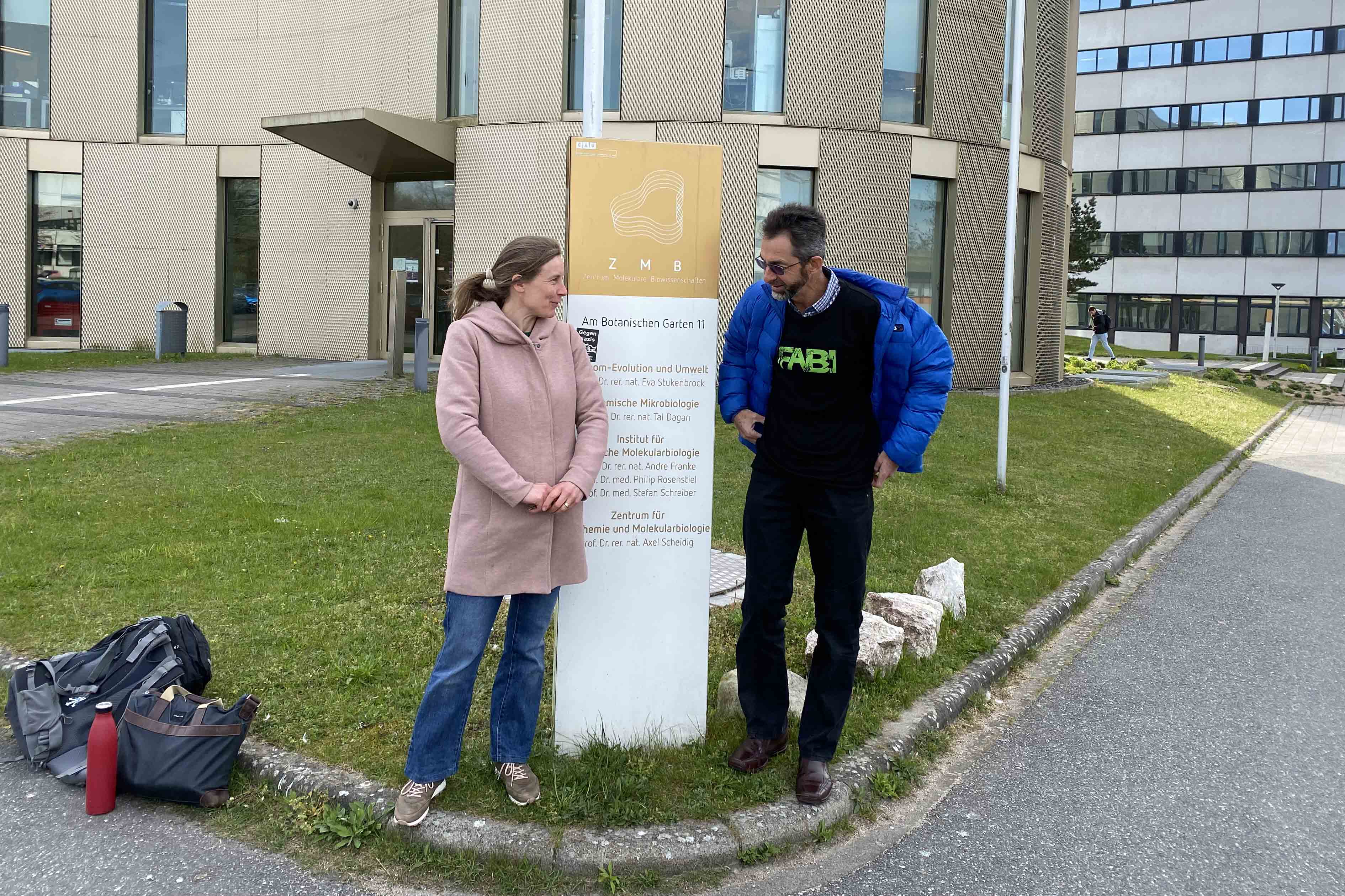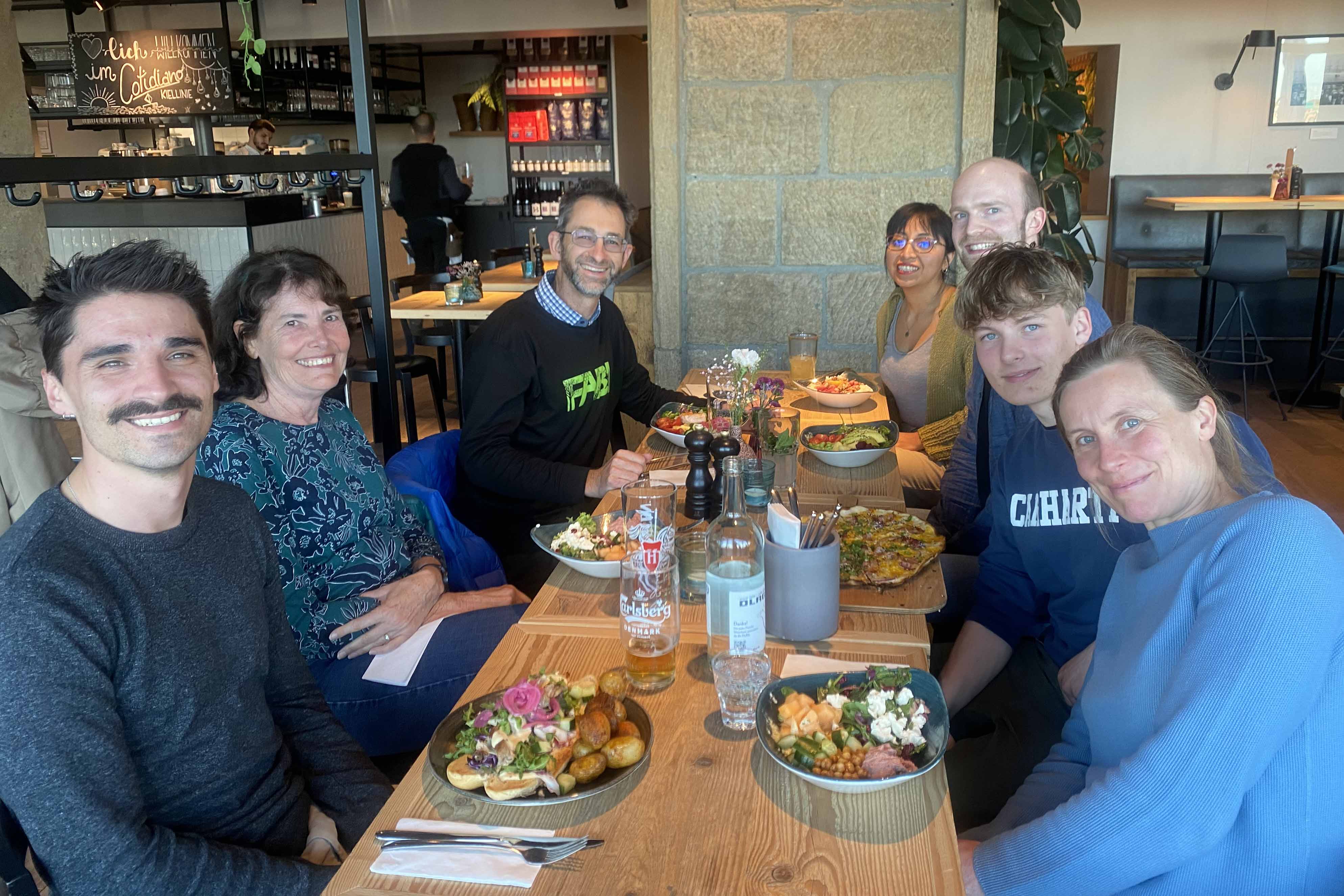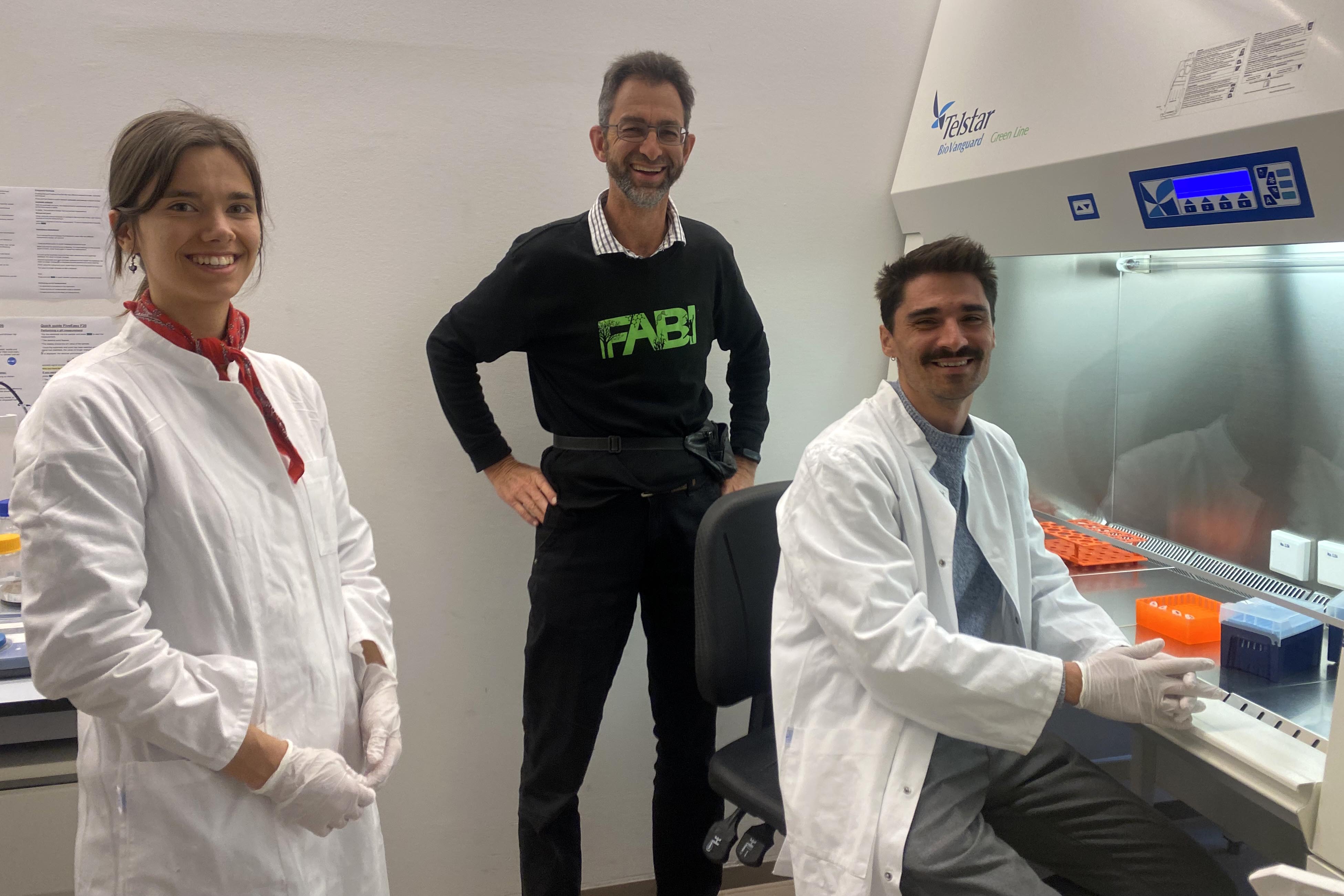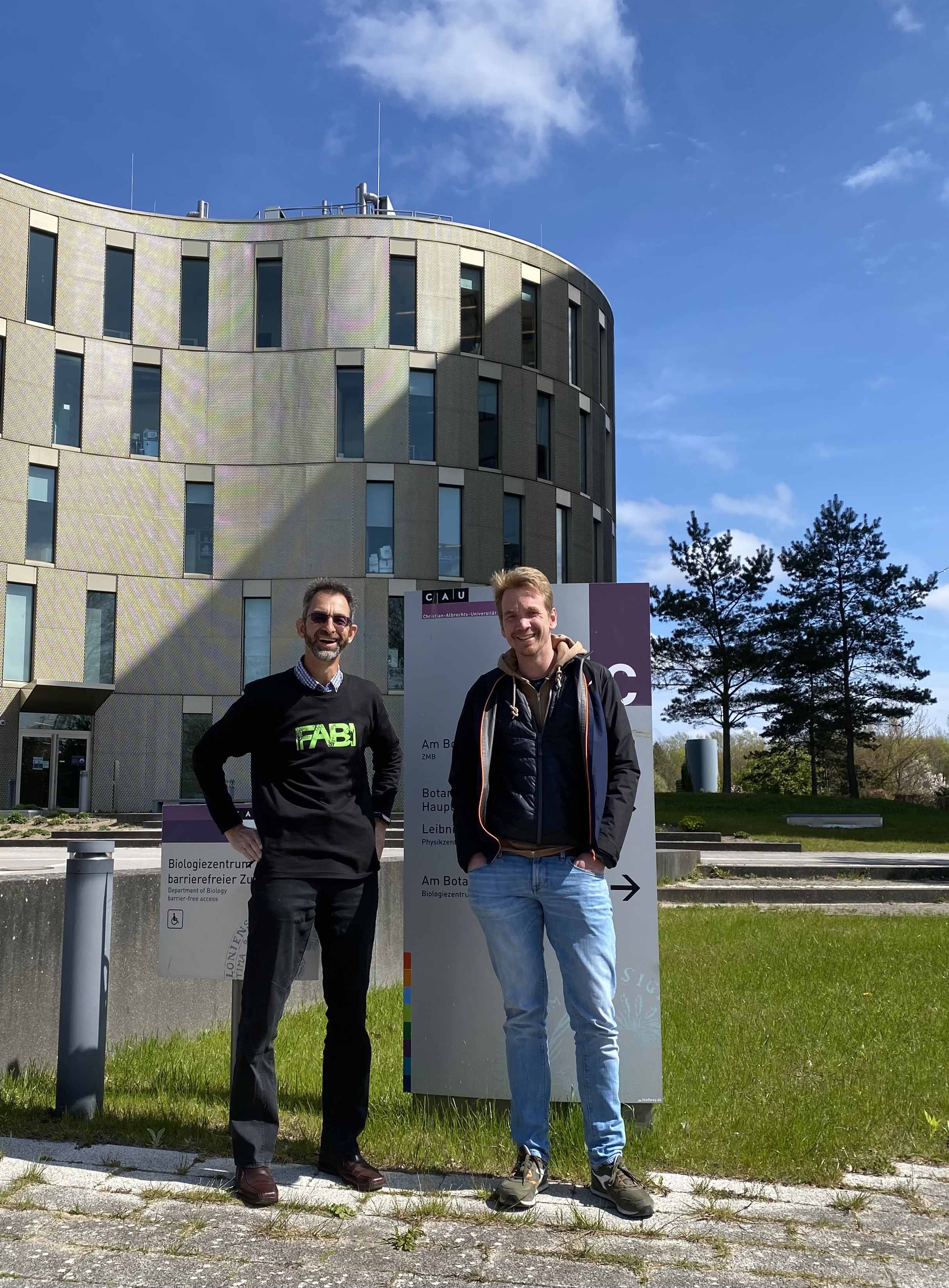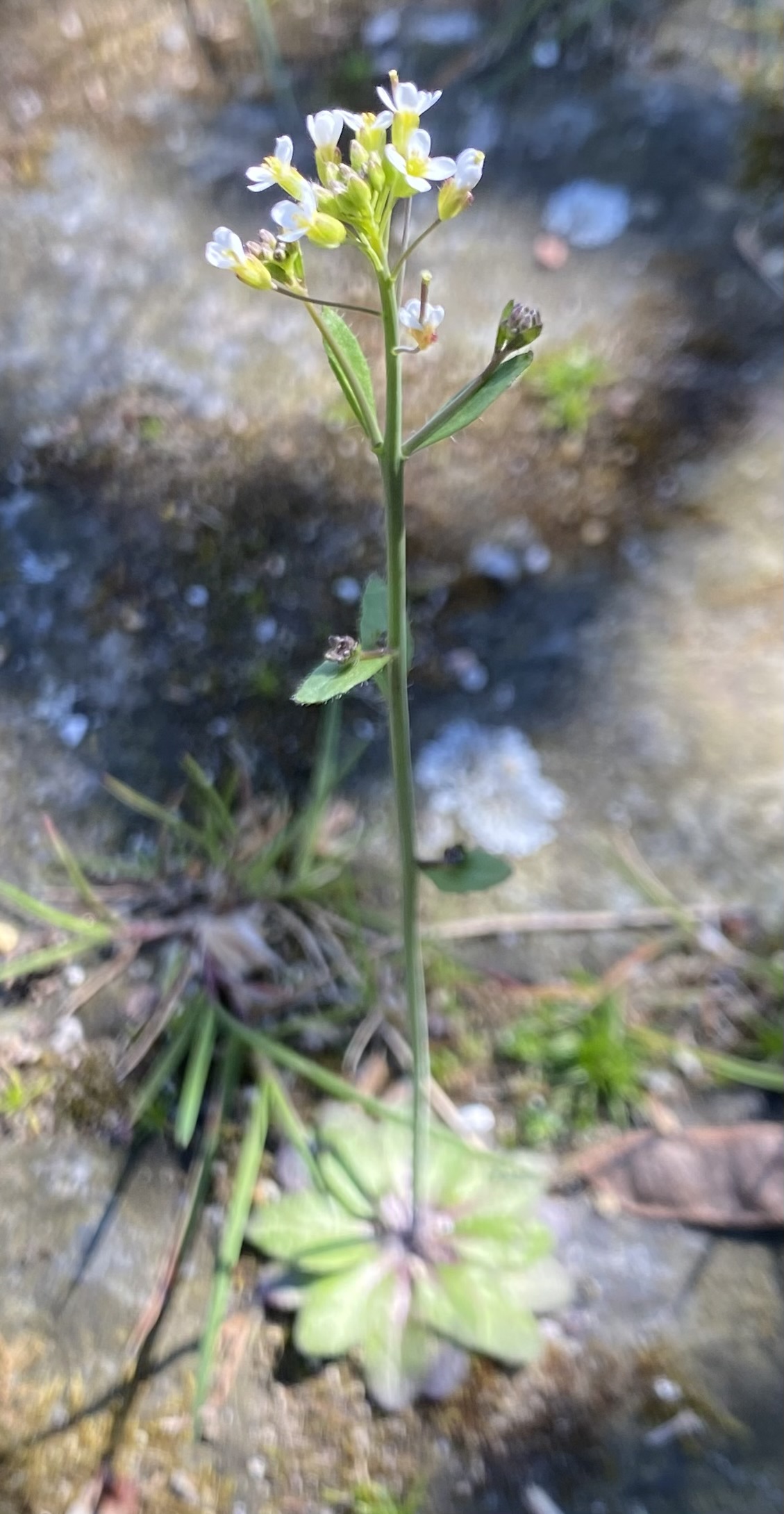Visit to Environmental Genomics group at Christian-Alberts University of Kiel 2023-06-05
Following on from the population genomics workshop presented by Prof. Eva Stukenbrock at FABI as part of the SASPP Congress in 2022, the collaboration was strengthened by a visit to the Environmental Genomics group at the Christian-Alberts University of Kiel in Germany. Prof. Dave Berger of the MPPI group at FABI presented a seminar entitled “Population genomics of the maize foliar pathogen Cercospora zeina in Africa”. At the start of the visit, Dave was confined off campus by COVID. However, “geluk by die ongeluk” meant that he could work on the manuscript from the PhD work of Tanya Welgemoed, which was submitted the last evening of his visit. Prof. Stukenbrock’s group, which is also affiliated with the Max Planck Institute for Evolutionary Biology at Plön, has a focus on species in the genus Zymoseptoria which infects wheat and related wild grasses. There are many lifestyle parallels between these fungi that are major threats to food security in the Northern hemisphere (Septoria leaf blotch of wheat) and Africa (Gray leaf spot of maize). Prof. Stukenbrock recently contributed to an authoritative commentary in Nature on the global threat of fungal pathogens. Dave had intensive discussions with PhD students and Postdocs in the EnvGen group about their population genomics and microbiome approaches that are leading to hypothesis on virulence and adaptation that are now being tested in the lab. A lesson from this is that fungal evolution research can also “evolve” from population genetics and genomics analysis to testing hypotheses with lab and field experiments. Dave also caught up with Prof. Remco Stam, recently appointed as Head of the Phytopathology Institute at the Christian-Alberts University of Kiel. A “highlight” of the visit to Kiel was finding the “weed” Arabidopsis growing between the paving stones while having a sandwich on the University steps.


